As social creatures, attending events and gatherings is an inevitable part of our lives. However, with the abundance of food and drinks offered at these events, managing hunger can be a challenging task. This is where the importance of planning ahead and practicing mindful eating comes in. Along with staying hydrated and avoiding alcohol, these tips can help you enjoy social events without overindulging. In this article, we will explore ways you can manage your hunger while attending social events, so you can maintain a healthy balance and still have a great time.
Plan Ahead
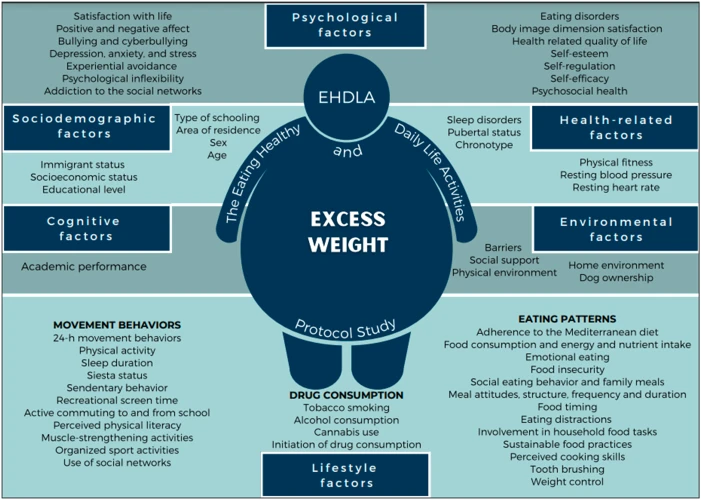
One of the most challenging aspects of attending social events is managing your hunger. It is easy to get carried away with all the delicious food and end up overindulging. However, with some careful planning and preparation, you can set yourself up for success. Here are some steps you can take to manage your hunger while attending social events:
Research the Menu
Before attending a social event, it’s important to do some research on the menu. This can help you plan ahead and make healthier choices. Here is how to research the menu:
- Check if the event has a menu available: Many events will post their menu on their website or social media pages. Take a look at the menu to see what options are available to you.
- Look for healthier options: Once you have the menu, look for options that are lower in calories and fat. Many restaurants will offer healthier options such as salads or grilled proteins.
- Find out how the food is prepared: Even if a dish appears healthy, it may be cooked in oil or served in a creamy sauce. Don’t be afraid to ask the caterers or restaurant staff how the dish is prepared.
- Consider the sides: Sides can be just as important as the main dish. Look for options such as steamed or roasted vegetables instead of fries or mashed potatoes.
- Stick to smaller portion sizes: Even if you cannot find a healthy option, it’s important to keep your portion sizes in control. Stick to smaller portions and avoid going back for seconds.
By doing your research, you can go into the event with a plan and make healthier choices.
Bring Your Own Dish
When attending social events where food will be served, it can be difficult to find options that align with your dietary needs and preferences. One solution is to bring your own dish. This not only ensures that there will be something for you to eat, but it also allows you to share your favorite healthy and delicious recipes with others.
Here are some tips for bringing your own dish:
| Tip | Description |
|---|---|
| Ask the host beforehand | Check with the host of the event to make sure it’s okay to bring a dish. They may have specific guidelines or dietary restrictions to consider. |
| Choose a recipe you love | Pick a recipe that you enjoy and know how to prepare well. This ensures that you will be satisfied with your own dish, and others may even ask for the recipe. |
| Consider dietary restrictions | Think about any dietary restrictions or allergies of the other guests. Your dish should be inclusive and not cause any harm to others. |
| Keep it easy to transport | Pick a dish that is easy to transport and won’t spill or get messy on the way there. Consider packing it in an airtight container to prevent any spills or leaks. |
| Label your dish | Label your dish with the name of the dish and any allergy information to help guests make informed choices. |
Bringing your own dish not only helps you manage your hunger while attending social events, but it also allows you to showcase your culinary skills and share your healthy habits with others. By following these tips, you can ensure that your dish will be a hit at any event.
Eat Before the Event
Eating before attending a social event is one of the most effective ways to manage your hunger and avoid overeating. By having a meal or snack before you go out, you’ll ensure that you don’t arrive at the event feeling famished and wanting to eat everything in sight. Here are a few tips on how to do it:
- Choose a high-protein snack: Opt for a snack that contains a good amount of protein, like a handful of nuts or a piece of cheese, as protein is the most filling macronutrient and will keep you feeling satisfied for longer.
- Avoid sugary snacks: While sweets and sugary snacks may give you a quick burst of energy, they’ll also leave you feeling hungry again in no time. Instead, choose a snack that contains complex carbohydrates, such as whole grain crackers or fruit.
- Don’t skip meals: Skipping meals in an attempt to “save up” calories for the event is never a good idea. Not only will it leave you feeling ravenous, but it can also slow down your metabolism and lead to overeating later on.
- Drink water: Drinking a glass of water before your meal or snack can help you feel full and reduce your appetite.
Remember, eating beforehand doesn’t mean you can’t enjoy some of the food at the event. It just means you’ll be less likely to overindulge and will have more control over your choices.
Practice Mindful Eating
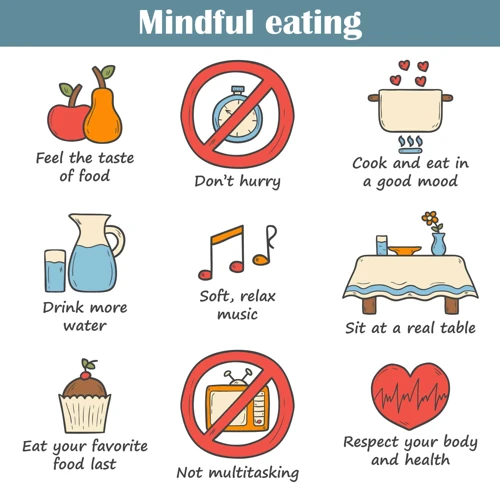
When attending social events, it’s easy to get caught up in the excitement and indulgence of the moment, often leading to mindless overeating. However, practicing mindful eating can help you stay in control of your hunger and make healthier choices. By being present and aware of your food intake, you can enjoy the experience without overdoing it. Here are some tips to help you practice mindful eating during social events.
Avoid Grazing
When attending social events, one of the biggest temptations is to constantly snack or “graze” on the available food. However, this can quickly add up and lead to overeating without even realizing it. To avoid falling into this trap, here are some tips to help you avoid grazing while also still enjoying the event:
- Fill Your Plate: Instead of constantly picking at food, fill your plate with a reasonable amount of food and only go back for seconds if you’re still hungry.
- Choose Wisely: Survey the available options and choose the items that you really want to try, rather than mindlessly snacking on everything in sight.
- Budget Your Calories: If you have a calorie goal for the day, plan ahead and budget a certain amount of calories for the event. This can help you make conscious choices about what and how much to eat.
- Avoid Standing Near the Food: Position yourself away from the food table to avoid the temptation to keep snacking. This can also help with socializing and mingling with others.
By using these strategies, you can avoid grazing and still have a fulfilling social experience. Remember, it’s all about balance and being mindful of your choices.
Use Smaller Plates
One way to practice mindful eating at social events is to use smaller plates. When you’re presented with a large plate, it’s easy to feel like you need to fill it up with food. However, this can lead to overeating and feeling uncomfortably full.
To combat this, try using a smaller plate. This will give the illusion that you’re eating a larger portion than you actually are, allowing you to feel satisfied without overindulging. You can also fill your plate with nutrient-dense foods, such as vegetables and lean protein, to keep you feeling full for longer periods of time.
Here are some other tips to keep in mind when using smaller plates:
- Take your time: Eating slowly and mindfully can help you feel more satisfied with smaller portions.
- Choose wisely: Be selective about what you put on your plate. Focus on healthy options and limit your intake of high-calorie, high-fat foods.
- Don’t go back for seconds: Stick to your smaller portion and resist the temptation to go back for seconds. Remember that you can always take more food home for later.
Keep in mind that using smaller plates may not be appropriate for every social event. If you’re dining at a fancy restaurant or attending a formal event, smaller plates may not be available. In these situations, focus on practicing mindful eating and making healthy choices.
Stay Hydrated

Staying hydrated is crucial when it comes to managing your hunger while attending social events. Sometimes you may mistake thirst for hunger, so it’s important to drink enough water throughout the day. Studies have shown that drinking water before a meal can even help you eat less. It can be a good idea to drink a glass of water before heading to a social event or before starting to eat.
Another great tip is to always carry a water bottle with you. This way, you can easily refill it at the event and have access to water whenever you feel thirsty. Not only does this help you stay hydrated, but it can also prevent you from reaching for sugary or high-calorie drinks that may add unnecessary calories to your diet.
If you’re attending a social event that involves alcohol, it’s especially important to stay hydrated. Alcohol can cause dehydration and also add extra calories to your diet. You should always alternate between alcoholic drinks and water to stay hydrated and avoid consuming excess calories.
In addition to water, you can also incorporate other hydrating options into your diet. For example, fruits and vegetables have a high water content and can help keep you hydrated. You can snack on sliced cucumbers or watermelon to quench your thirst and curb your hunger.
Staying hydrated is a simple yet effective way to manage your hunger while attending social events. By having some water or other hydrating options on hand, you can avoid overeating and making unhealthy food choices.
Deal with Social Pressure
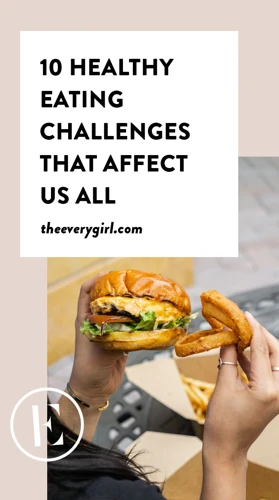
Navigating social events while managing your hunger can be a challenging feat, especially when you have to deal with social pressure from those around you. It’s easy to feel like you’re missing out on the fun when everyone else is chowing down on indulgent dishes, and the anxiety to fit in can be overwhelming. This is where the importance of having a game plan and a support system in place comes in handy. In this section, we will explore strategies to help you deal with social pressure, so you can stay on track with your goals while still enjoying your social life.
Be Confident in Your Choices
Making confident choices can be difficult when attending social events. However, it is important to remember that what you eat is ultimately up to you. This means that you do not have to give into social pressure or feel forced to eat something that you are not comfortable with. Here are some tips on how to be confident in your choices:
| Avoid Comparing | Stick to Your Values | Do Not Feel Guilty |
|---|---|---|
| Avoid comparing what you are eating to what others are eating. Remember that everyone’s bodies are different and have different needs. | Stick to your values and make choices that align with your personal beliefs and dietary needs. This will help you feel more confident in your choices. | Do not feel guilty about saying no to certain foods. It is important to prioritize your health and well-being. |
| Avoid Negative Self-Talk | Have a Game Plan | Know Your Limits |
| Avoid negative self-talk and focus on positive affirmations. Remind yourself that you are making healthy choices and taking care of your body. | Have a game plan for how you will handle certain situations such as being offered alcohol or dessert. This will help you feel more in control and confident in your choices. | Know your limits and do not push yourself too hard. If you feel uncomfortable, it is okay to politely decline or step away from the situation. |
By following these tips, you can feel more confident in your choices and make decisions that align with your personal values and dietary needs. Remember to prioritize your health and well-being, and do not feel pressured to conform to societal norms or expectations.
Have a Response Ready
In social events, you may be offered food or drinks that do not align with your dietary preferences or goals. It can be challenging to decline these offerings without feeling rude or out of place. To avoid this situation, it’s essential to have a response ready that reflects your goals and values.
Here are some responses that you can use:
- “Thank you, but I’m good for now.” This response works well if someone offers you food or drinks that you’re not interested in without being confrontational. It acknowledges their offer and politely declines it.
- “No, thank you, I brought my own snack.” Bringing your own snack to a social event is a great way to ensure that you have something to eat that fits your dietary preferences. If someone offers you food, you can use this response to let them know that you have your food covered.
- “I would love some, but I’m allergic to (insert ingredient here).” If you have food allergies or intolerances, this response can help you politely turn down food or drinks that you cannot consume. Make sure to mention the ingredient you’re allergic to, so the person offering you food knows that it’s not a personal preference.
- “I’m trying to (insert goal here), so I have to decline.” If you’re trying to stay healthy, lose weight, or follow a specific diet, this response can help you decline food or drinks that don’t align with your goals. It’s honest and respectful and can deter further offers.
Having a response ready can help you navigate social events confidently without feeling pressured to eat or drink things that do not align with your goals. Remember that it’s okay to decline an offering politely and respectfully, and your friends and hosts should respect your choices.
Avoid Alcohol
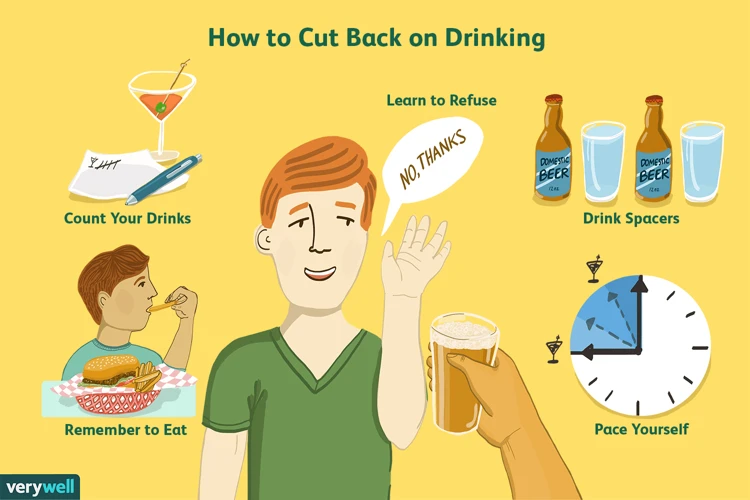
While attending social events, it’s common for alcohol to be present. However, consuming too much alcohol can lead to overeating and poor food choices. It’s important to limit or avoid alcohol altogether if you’re trying to manage your hunger.
Alcohol can increase hunger and calorie intake. Drinking alcohol can stimulate the appetite and lower inhibitions, leading to overeating and poor food choices. Additionally, alcoholic beverages contain calories that can add up quickly. Drinking water or other non-alcoholic beverages instead can help you stay hydrated and avoid unwanted calories.
Alcohol can impair your judgment. When we drink alcohol, our inhibitions and decision-making abilities can become impaired. This can lead to poor food choices and overeating. It’s essential to stay in control of your actions and make mindful food choices.
Alcohol can affect your sleep quality. Consuming alcohol can disrupt your sleep cycle and make it harder to get restful sleep. Poor sleep can lead to increased hunger and cravings the next day, making it harder to manage your appetite.
It’s okay to enjoy a drink in moderation. If you do choose to consume alcohol at a social event, it’s essential to do so in moderation. Limit your intake to one or two drinks and make sure to balance it with plenty of water and healthy food choices.
Avoiding or limiting alcohol consumption can help you stay in control of your appetite and make healthy food choices while attending social events.
Find a Support System
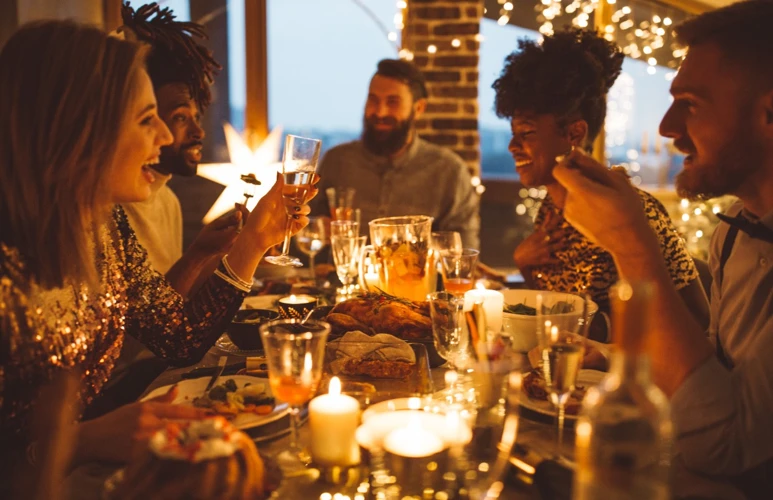
Managing your hunger while attending social events can be challenging, especially when you are trying to make healthier choices. One way to make this process easier is by finding a support system. Having people around you who share your goals and can provide encouragement and accountability can go a long way in helping you stick to your plan.
Consider talking to friends or family members who also prioritize healthy eating or fitness goals. Perhaps you can attend social events together or even plan your own healthy gatherings. Joining a community organization or online group focused on health and wellness can also be a great way to connect with like-minded individuals and gain additional support.
Remember that everyone’s journey is unique, so find a support system that works for you. Whether it’s a workout buddy or a group of friends who share healthy recipes, having people in your corner can make all the difference in sticking to your goals and making healthier choices while still enjoying social events.
Stay Active
Staying active is an effective way to manage your hunger while attending social events. Physical activity can help reduce appetite and keep you focused on maintaining healthy habits. One way to stay active is to get up and move around during the event. You can join a dance or take a walk around the room. This will help keep your metabolism up and prevent you from overeating.
Another way to stay active is to incorporate exercise into your routine leading up to the event. You can take a brisk walk or jog in the morning to rev up your metabolism for the day. Consistent exercise leading up to the event will help you stay on track with your healthy eating habits and prevent you from feeling ravenous when you arrive.
Remember that staying active doesn’t always have to mean formal exercise. You can also engage in fun physical activities such as playing outdoor games like badminton or frisbee with family and friends. This will not only help you stay active but also allow you to enjoy the event in a new and exciting way.
It’s important to ensure that you’re getting enough rest and sleep before the event. Getting adequate sleep helps regulate hormones that control hunger and appetite. Lack of sleep can lead to overeating and poor food choices, which ultimately affect your health in the long run.
Staying active both leading up to and during social events is an effective way to manage your hunger and avoid overeating. Incorporating exercise into your routine and getting enough rest will not only help you maintain healthy habits but also allow you to enjoy social events to the fullest.
Conclusion
In conclusion, managing your hunger while attending social events can be a challenging task; however, with proper planning, mindful eating, hydration, and social support, it doesn’t have to disrupt your healthy lifestyle. Remember to research menus, bring your own dish, and eat before the event to set yourself up for success. Mindful eating techniques such as avoiding grazing and using smaller plates will help you stay on track during the event. It’s also important to stay hydrated and avoid alcohol, which can increase your appetite and impair your judgment. When dealing with social pressure, remember to be confident in your choices and have a response ready. Lastly, finding a support system and staying active can also help you manage your hunger and maintain a healthy lifestyle. With these strategies, you can enjoy social events while staying true to your health goals.
Frequently Asked Questions
How can I manage my hunger at events without feeling deprived?
One of the best strategies is to fill up on fiber-rich foods like fruits and vegetables, which can help you feel fuller for longer periods of time. You can also bring your own healthy snacks or eat before the event.
What’s the best way to plan ahead for social events?
Start by researching the menu ahead of time, deciding what you can eat and what you should avoid. You can also bring a healthy dish to share, so you know there’s at least one option you can eat.
How can I avoid grazing at social events?
Avoiding grazing requires intentional eating. Stick to one or two plates of food, and avoid mindless snacking while chatting or standing around.
Why is it important to use smaller plates?
Using smaller plates can help you control your portion sizes and keep yourself from overeating. This can be especially helpful at buffet-style events.
What’s the best way to deal with social pressure to overeat?
Be confident in your choices and don’t be afraid to say no to foods you don’t want or can’t eat. You can also have a response ready, such as “No thanks, I’m full” or “I’m trying to be mindful of my eating today.”
Why should I avoid alcohol at social events?
Alcohol can lower your inhibitions and cause you to eat more than you planned. It can also pack on the calories and dehydrate you.
How can staying active help me manage my hunger?
Regular physical activity can help regulate your appetite hormones and reduce feelings of hunger. Even light activities like taking a walk can be helpful.
What should I do if I slip up and overeat at a social event?
Don’t beat yourself up – just get back on track as soon as possible. Focus on making healthy choices at your next meal or snack, and don’t let one slip-up derail your progress.
What’s the best way to find a support system for healthy eating?
You can start by talking to friends and family members who are trying to eat healthy, or by joining a local support group like Weight Watchers or Overeaters Anonymous. You can also find online communities and social media groups for support and motivation.
Why is it important to stay hydrated at social events?
Drinking plenty of water can help keep you feeling full and reduce your chances of overeating. It can also help prevent dehydration if you’re drinking alcohol or spending time outside in the heat.







